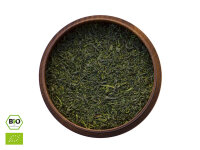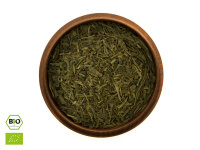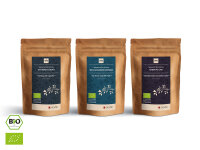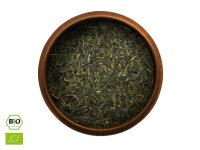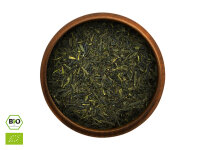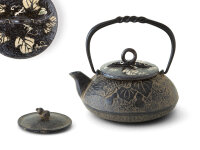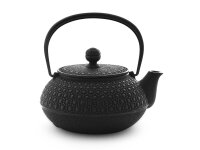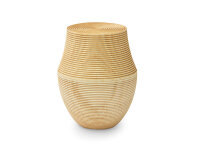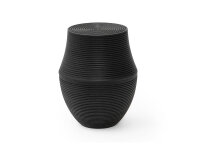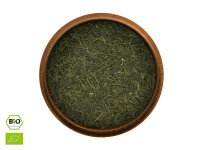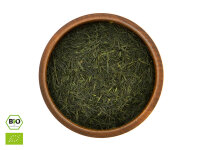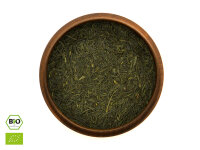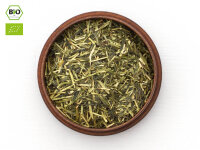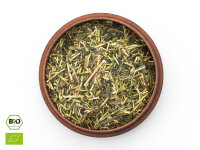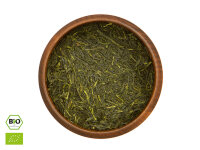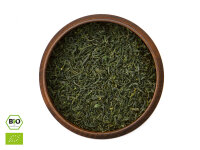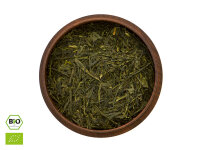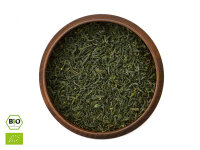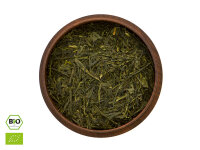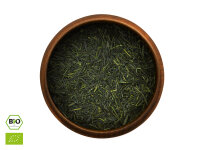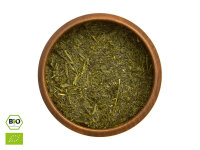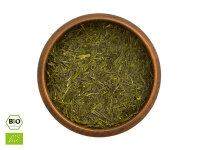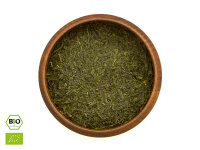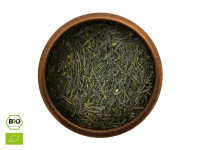"Tamaryokucha Organic, Japan. 100 g"
Original Japanese Tamaryokucha
From Sencha, Tamaryokucha differs in its shape and processing method. Its shape is much smaller and not needle-like, which is the result of rolling, but shortened according to the natural leaf shape. This supports its full and deep flavor. The production of Tamaryokucha occupies only a small percentage, less than 5%, of the total tea production. Due to the roasting process, it is not a typical Japanese green tea, it reminds of Chinese or Korean green teas. Tamaryokucha gets its Japanese flavor from its intense, grassy character and sensitive processing, especially during careful roasting. Its class is expressed in a distinctly harmonious balance, the delicate creamy and nutty-soft finish.
How does Tamaryokucha taste
It's easy to fall in love with this exceptional tea. It is simply uncomplicated, as it has few tannins and bitterness. Yet its flavor is complex, deep and full. The nutty and berry notes harmonize wonderfully with the grassy base character. Test different brewing times and water temperatures.
Tamaryokucha and your health
A very compatible tea that can support your health in a very balanced way. Similar to Sencha, Tamaryokucha has a lot of catechins and antioxidants, so it can have a positive effect on metabolism, cardiovascular, intestinal functions, memory and counteract inflammation.
Tea Tea Gems Are Valuable But Rare
Only small quantities of our rarities are harvested and produced each year. In exchange, they indulge with their exceptional characters and exquisite flavors that have been cultivated and refined over centuries. All rarities are of the finest organic quality. Since only the most tender leaves of the plants are used for our teas, the plucking quantities are very small. All pluckings are done by hand, carefully checked and sorted. To fully enjoy these rare green teas, you should ideally use soft water, filtered if necessary. You can achieve an increase in flavor by boiling the water in a real Japanese kettle and brewing the tea in a Japanese clay teapot (Kyusu) according to the instructions.
Suitable for multiple infusions. Also very tasty as a cold drink.

